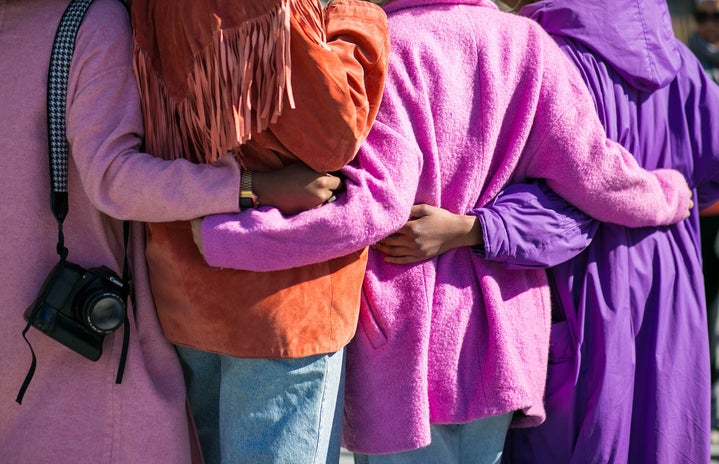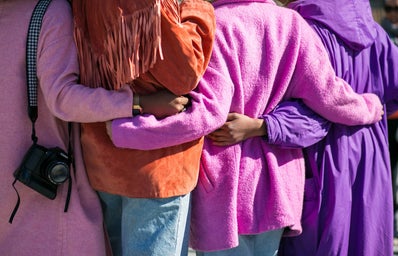To give credit where it is due, I first heard the use of the phrase ‘comradery in misogyny’ by Tik Tok creator Abby Drake. In this video, the creator explained how sleeping with your ex’s best friend is not the great revenge tactic one might think it is. Instead, men will bond over the degradation and objectification of you and your body. The truth behind this phrase expands to much more than this example and into the everyday realities and relationships of men and women.
Misogyny affects the relationships between men, between women, and within women. The comradery in misogyny emcomppases the ways in which men inherently benefit from the mistreatment or violence against women, how women’s own perception of autonomy is often driven by male interests, and how misogyny can negatively affect the relationships and bonds between women.
Though it is an unsettling truth, all men benefit from violent actions against women. Men often believe that if they are not enacting crimes such as rape or domestic violence themselves then it excludes them, but they fail to recognize their positionality in a larger gendered system. Any violent action that a man enacts on women helps to sustain male dominance and the oppression of women. Since all men are implicated in the problem, all men have a responsibility in preventing it.
Misogynistic and sexist ideas that underpin violence and abuse have a way of uniting men and strengthening their personal relationships. A lot of men bond over their attitudes and behavior toward women, whether it be hypersexualization or misogynistic jokes. As Drake explains, “women are channels for which men relate to each other.” Reproducing gender norms, even unknowingly, contributes to both an increase in violence and to the comradery of men. They will bond and benefit from our pain and mistreatment, thus becoming a joint force against our freedom.
Another large issue at hand is how the thoughts and actions of women are often dictated by misogynistic underlyings, ultimately serving males interests. This also includes how even our perception of autonomy is often controlled. A quote by Margaret Atwood in her novel The Robber Bride describes this phenomenon best:
“Male fantasies, male fantasies, is everything run by male fantasies? Up on a pedestal or down on your knees, it’s all a male fantasy: that you’re strong enough to take what they dish out, or else too weak to do anything about it. Even pretending you aren’t catering to male fantasies is a male fantasy: pretending you’re unseen, pretending you have a life of your own, that you can wash your feet and comb your hair unconscious of the ever-present watcher peering through the keyhole, peering through the keyhole in your own head, if nowhere else. You are a woman with a man inside watching a woman. You are your own voyeur.”
This idea demonstrates how even our own attempts at liberation, such as the Free The Nipple movement, can cater to the male gaze rather than successfully eliminating objectification. It is an incredibly difficult and heartbreaking reality to grasp. No matter how good our intentions are, our reality is tainted by patriarchal logic.
Even though women can bond in our experience with misogyny, it can still act as a barrier between us. It is a sad and awful paradox that gets in the way of women building genuine bonds with each other. Internalized misogyny, or the projection of sexist ideals onto other women, is often seen in the lack of solidarity that some women have. Competing for superiority or attention and tearing down other women is a result of unchecked internalized misogyny. It keeps us separate, and it keeps men in power.
Patriarchal ideas and attitudes are deeply embedded into our social institutions and beliefs. Misogyny has strengthened the bonds of men and broken bonds within women. It is crucial to acknowledge and work against ideas and actions that perpetuate the violence and oppression of women. Comradery in misogyny should cease to exist.

